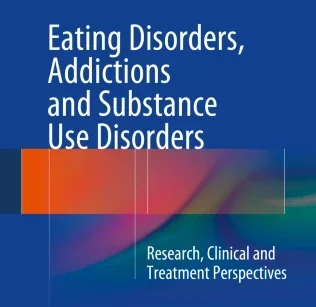Muscle dysmorphia: Where body image obsession, compulsive exercise, disordered eating, and substance abuse intersect in susceptible males
By S.E. Specter & David A. Wiss

Formerly a rare or rarely recognized occurrence, muscle dysmorphia may be an increasingly prominent psychiatric condition—a predilection for fitness resulting from cultural trends and attitudes regarding appearance, which evolves into pathological behaviors among certain subpopulations. The condition is almost wholly exclusive to men, presumably given the greater cultural pressures for men to be muscular, as well as their greater genetic potential to achieve this objective. When the clinical picture includes other psychiatric comorbidities or involves abuse of anabolic steroids and other drugs, the potential for disrupting social and occupational functioning is significantly increased. More research is needed to uncover neurobiological and psychosocial drivers that may underpin the unique pressures males experience with respect to accepting or trying to perfect their physical appearance. Earlier recognition and acceptance of treatment by affected individuals will start with better tools for initial assessment, with sustainable recovery based on therapeutic strategies aimed at normalizing the self-destructive thoughts, emotions, and behaviors that characterize this complex and incompletely understood condition.
Subscribe for weekly insights and research exploring the link between nutrition & mental health.
Abstract
A growing number of adolescent and adult males are dissatisfied, preoccupied – even impaired by concerns about their physical appearance. Feelings of discontent and insecurity can lead to disordered eating and substance abuse when males compare themselves against popularized cultural standards of attractiveness and see themselves falling short. When body image dissatisfaction, compulsive exercise, and food intake dysregulation combine and intensify, risk increases for a psychiatric condition identified within the past 20 years known as muscle dysmorphia, a disturbance of self-perception in which individuals are obsessively preoccupied with the belief they are insufficiently large or muscular.
Muscle dysmorphia shares characteristics with eating disorders (such as persistent attention to intake and compensatory behaviors focused on control of weight/shape), obsessive–compulsive disorder (excessive body monitoring and physical activity), and body dysmorphic disorder (including extreme attention to outward appearance). The condition is frequently associated with anabolic androgenic steroid abuse, which may exacerbate an observed exercise dependence or compulsive drive for muscularity.
Therapeutic approaches are guided by the individual symptom picture with respect to issues such as obsessional thoughts/compulsive behaviors, mood dysregulation, and anxiety, and have principally been derived from clinical studies examining body dysmorphic disorder, for which both psychotropic medications and cognitive behavioral therapy are considered first-line treatment.
Nutrition education and support is also warranted. More research is needed to increase understanding regarding the unique pressures and profound subjective distress males can experience with respect to accepting their bodies, as well as to develop better approaches to assessment and treatment of this complex condition.